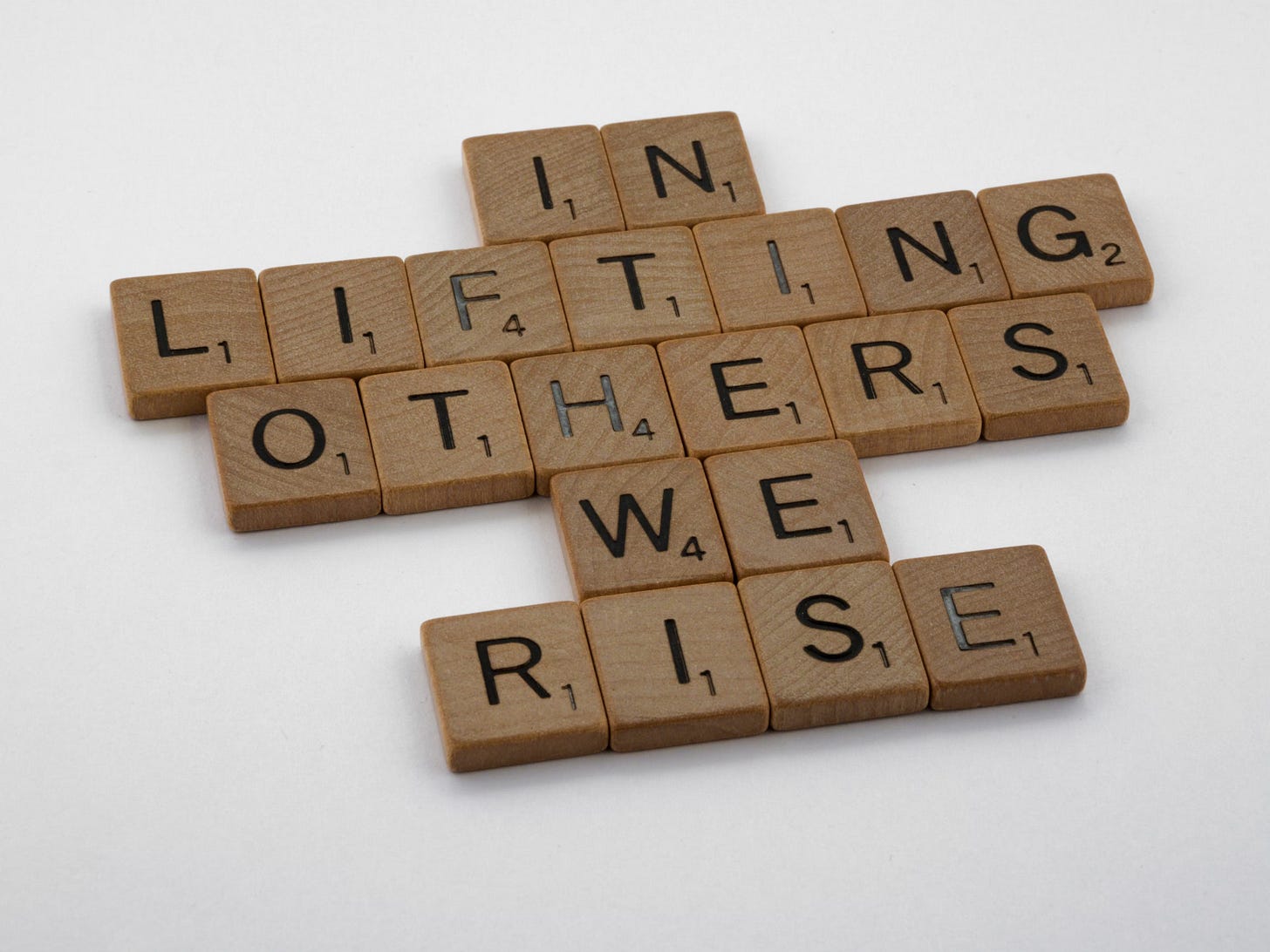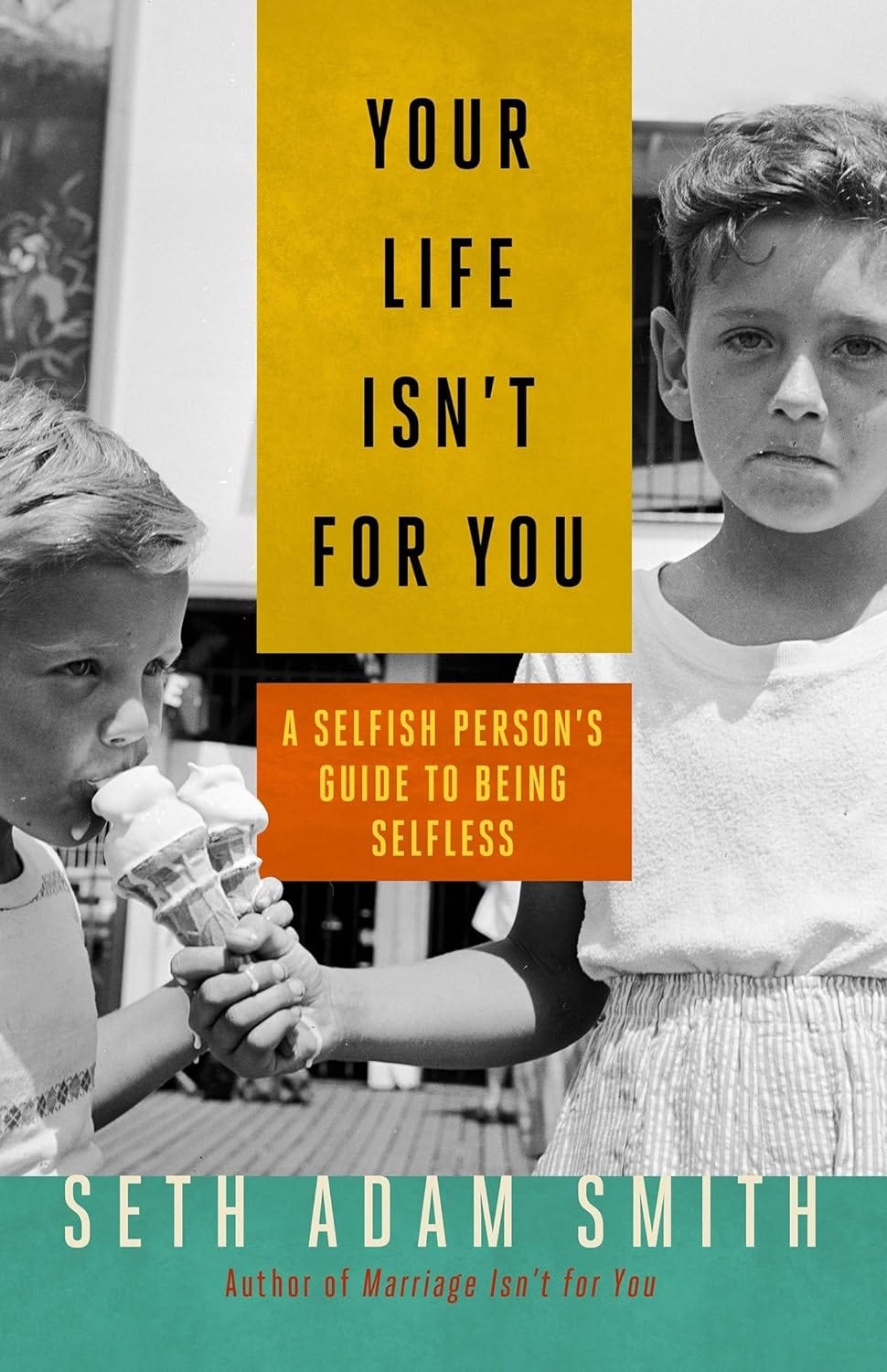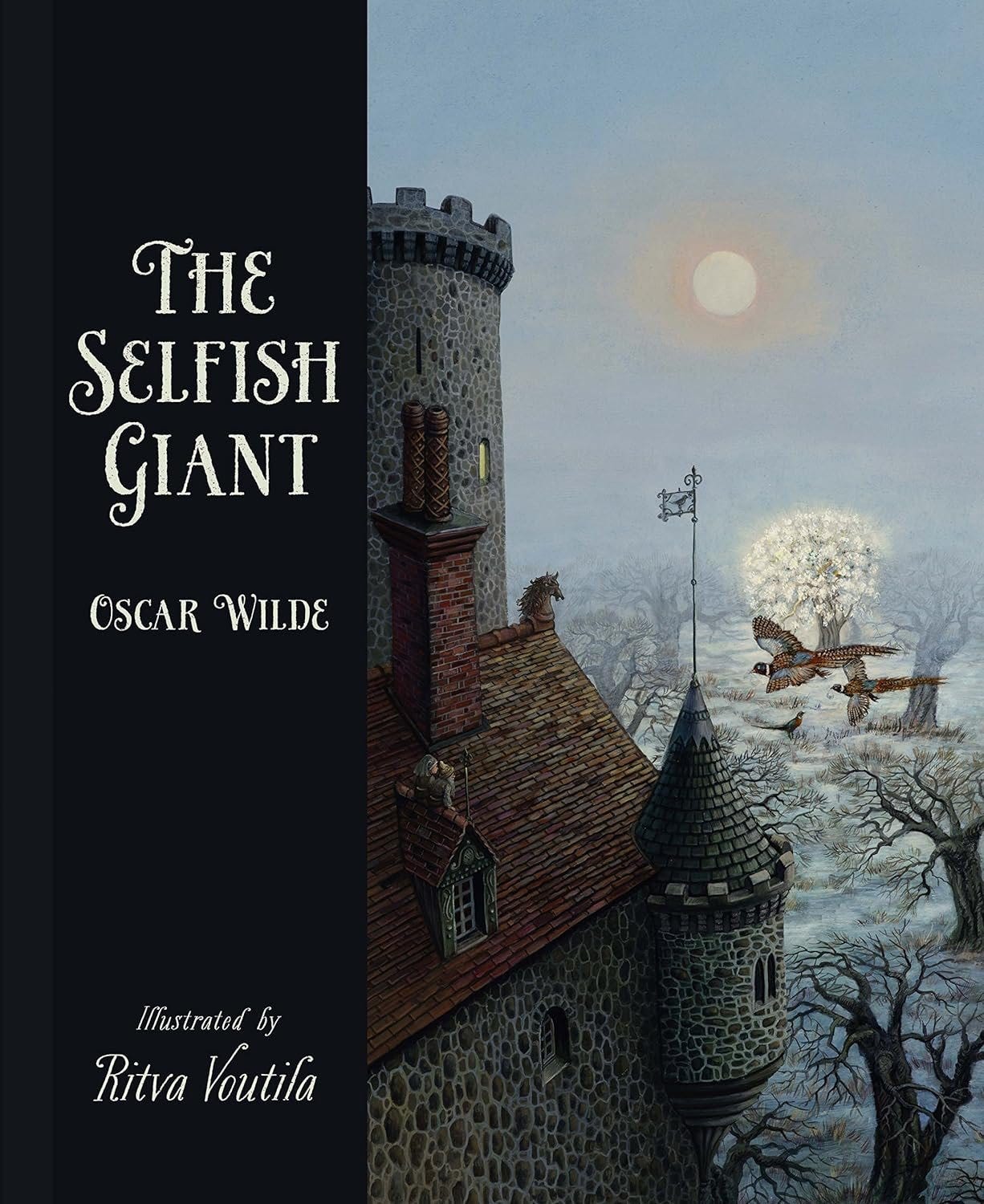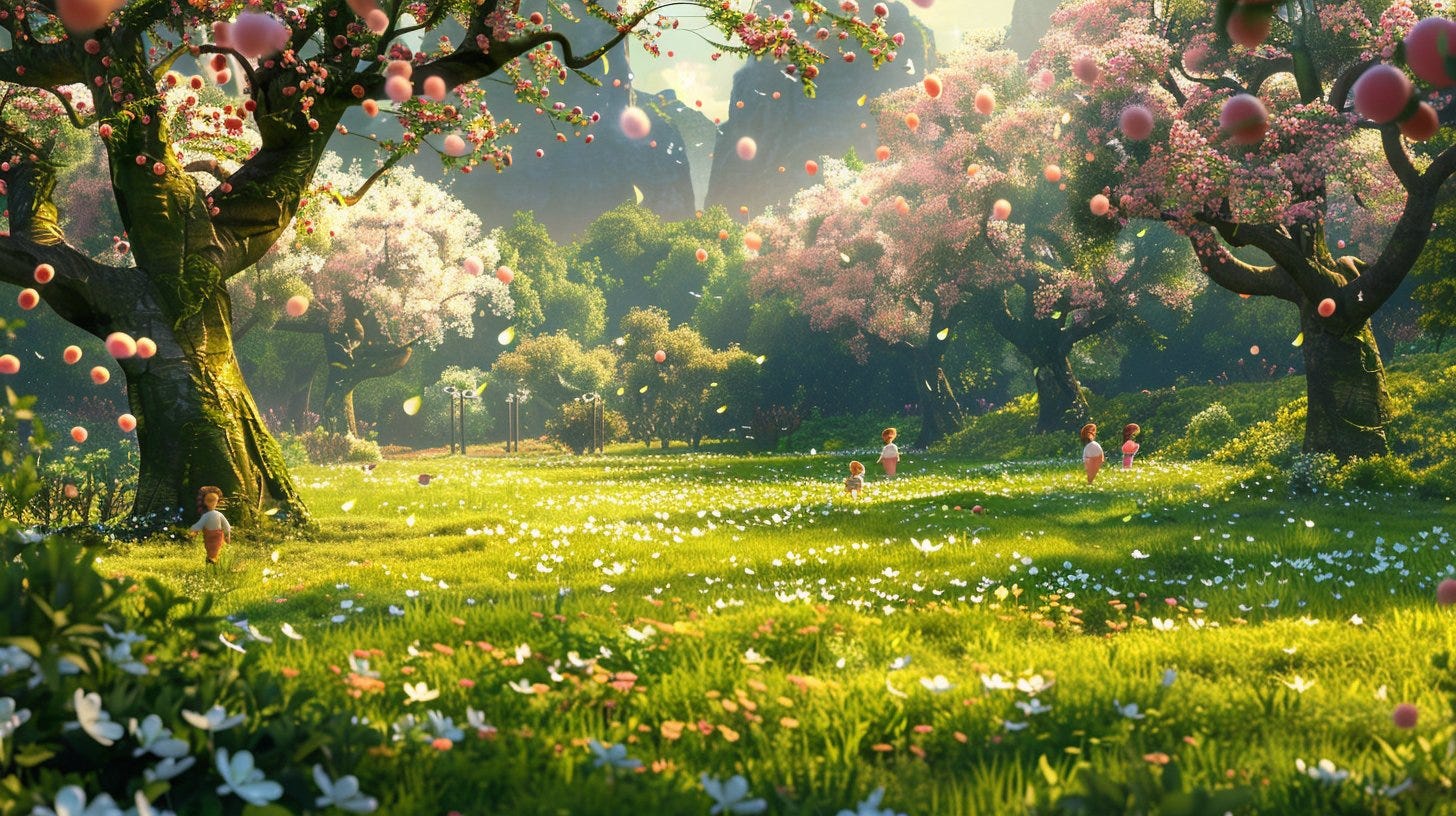Your Life Isn't For You
Some thoughts from a book about how to stop being selfish
The following is a TSF free post. If you want access to our comment box & community, subscribers-only posts, The Friday Roundup, and the full post archives including this one, you can grab all of that for just $5 a month (or even less on an annual plan) by subscribing right here:
Writing is how I make my living, so if you like what you see here, please support my work by subscribing!
If you’ve already subscribed but would like to buy me a coffee to help keep me fueled up for writing, you can do that here:
I think it's fair to say that most of us struggle with selfishness.
But I'd like to tell you the story of one young man whose selfishness nearly cost him his life, and what he learned from that experience.
Seth Adam Smith is an introvert. But his dislike and avoidance of other people very nearly killed him. "I thought only about myself," he writes. "My wants, my feelings, and my problems. My selfishness was a downward spiral that led to a veritable prison of isolation and despair."
He couldn't find a way out of the dark. He was depressed and miserable, and one day, he finally decided to end the pain and take his own life.
And he very nearly succeeded.
Seth reflects on this and other formative experiences in his 2014 book, Your Life Isn’t for You: A Selfish Person’s Guide to Being Selfless.
If you'd like, you can grab it at Amazon right here, but I read it so you don't have to.
Some key lessons follow:
By his own account, Seth grew up in a loving family. They were Mormons, and Seth did missionary work in Russia before ultimately getting sick and deciding to quit and come home.
"I hated being a Mormon missionary," He writes. "Hated it.”
It turns out, Seth had chronic depression.
"Depression runs in my family, and I had unknowingly struggled with the condition for many years. But at the age of nineteen, I didn’t know that was what it was. All I knew was that I was hurting..."
Before leaving Russia, Seth met a missionary named Erich, who gave Seth a gift.
The gift wasn't tangible. It came in the form of wisdom.
When Seth asked Erich what made him a successful missionary, Erich replied, "I don’t know if I’m ‘successful,’ but I do know that the only thing that matters is that you learn to love people."
"If you learn to love the people you are serving," Erich added, "then everything will just fall into place.”
At the time he received this advice, Seth had no idea what to do with it. "Erich was asking the impossible," he said. "What more am I expected to give?"
"I obviously wasn’t designed to love people," Eric writes, "and I was only causing problems there. My inability to 'love people' had frustrated me for the last time. Why keep it up? Why try anymore?"
But coming home didn't make things better. If anything, they got worse.
Seth says that he spent the months following his return mostly in bed, trying to "sleep his life away." He didn't understand how anyone could love someone like him. And since he felt he had nothing to offer others, he felt a need to protect what little life he had.
Seth felt empty and devoid of sentiment. He ached to fill the void, and became addicted to painkillers.
"My addiction only accelerated my desire to serve myself, driving me further and further into isolation, secrecy, and self-centeredness."
One day, he decided he'd had enough. He left his job early, drove back home, parked in the garage, wrote some goodbye notes, then downed half a bottle of painkillers and a whole bottle of sleeping pills.
Meanwhile, at work, his father experienced an inexplicable sense of dread.
His dad somehow knew something was wrong with his son. He began searching for him everywhere. He found the empty pill bottles and became even more frantic. When he found Seth in the garage, Seth was mostly unconscious. His dad immediately called 911.
"Despite my efforts to make my life 'my own,'" Seth writes, "there were people who valued my life as though it were their own. They had already learned that their lives were not just for them and had wrapped their hearts around mine, whether or not I chose to accept it."
Seth knows the story of his suicide attempt could have ended very differently.
"Looking back on it now, I shudder to think how close I came to ending my life. I would have succeeded had my father not found me."
But Seth still wasn't quite sure what to do with the realizations he was beginning to come to.
And then he remembered a bedtime story his father had read to him when he was little. It was called, The Selfish Giant, by the 19th century Irish poet Oscar Wilde.
The story is about a Giant who has a beautiful garden, full of flowers and birds and lush fruit trees. When he leaves to visit his friend, Ogre, some children discover the garden and begin to come there to play.
When the Giant returns, he is annoyed to find the children there.
"My own garden is my own garden," says the Giant; "any one can understand that, and I will allow nobody to play in it but myself." He builds a wall around his garden to keep the children out, and puts up a sign that says "TRESSPASSERS WILL BE PROSECUTED."
But something happens then that the Giant doesn't understand. Winter comes, but it never leaves. The rest of the world blossoms into Spring, but not the Giant's garden. That was still covered in snow and ice. This continued for season after season.
One morning, when the Giant woke up, he was surprised to hear beautiful music. It had been so long since he'd heard birdsong, he didn't even recognize it at first. When he looked out the window, he saw that something he never could have expected was happening.
Some children had come through a hole in the garden wall, and wherever they played, Spring burst forth from the wintry garden. Suddenly, the Giant realized how selfish he had been, and resolved to knock down the wall and let the children play there forever.
For Wilde, the story was religious allegory. For Seth, a mirror:
"I was thinking like the Selfish Giant...I wanted a beautiful garden (a rich and abundant life) without the annoyance of people trampling through it...I had selfishly tried to hoard the life that was 'mine.'"
Later, when Seth was trying to decide whether to marry the girl he was dating, his father gave him advice that drove the point home: “Seth, you’re being totally selfish. So I’m going to make this really simple: Marriage isn’t for you."
But why had his father said this?
"You don’t marry to make yourself happy," his father continued. "You marry to make someone else happy…. It’s not about you. Marriage is about the person you married.”
Seth published this advice in a blog post, and it went totally viral, with tens of millions of views.
Seth's father had done it again.
"His counsel was life changing. It went completely against the grain of my selfish fears. Perhaps that’s why his advice resonated with so many people. Because I think we all recognize...that selflessly loving others is the right thing to do."
Seth thought a lot about what his friend Erich had told him back in Russia.
"A garden is beautiful only when it is filled with people," Seth writes. "They determine its beauty. Our joy in life is inextricably determined by the degree to which we love and embrace others."
After his suicide attempt but before he got married, Seth decided it was time to push back against his introversion and do some work in loving service of others, as Erich had taught him. He got a job helping teens struggling with depression and addiction.
The work took place in the context of a wilderness program. They went on hikes. They slept under the stars. They cleared their bodies of toxins and their minds of toxic thoughts.
"The first step toward liberation," Seth writes, "is as easy as looking out the window of your own life. See how others might be suffering, and then open the door to go out and help them."
But there was a problem.
"After years of living such a shallow life," Seth says, "I frankly didn’t know if I had anything to offer." But he tried anyway. He got paired up with a 16 year old girl named Megan, who reminded Seth of the Saguaro cactus: "constantly prepared to defend herself."
But to his surprise, Seth found he was able to reach Megan. He built her up, and helped her to see the "seeds of greatness" in herself that she had never seen. She left a changed young woman. "To hear her talk about the life she is living enriches and fulfills my own life."
"Just like the Giant...we can find the answers to our lives...in the form of small acts of service that we perform for others. Reach out and lift someone else. See and acknowledge his or her seeds of greatness, for as we lift and inspire other people, we also lift ourselves."
Seth's conclusion is stated right at the beginning of the book: "Your life isn’t for you. Really. It’s not...The truth is that nature didn’t design us to find fulfillment in living for ourselves. We can achieve the fullest measure of life only by living it for others."
This was a TSF free post. If you want access to our comment box & community, subscribers-only posts, The Friday Roundup, and the full post archives including this one, you can grab all of that for just $5 a month (or even less on an annual plan) by subscribing right here:
Writing is how I make my living, so if you like what you see here, please support my work by subscribing!
If you’ve already subscribed but would like to buy me a coffee to help keep me fueled up for writing, you can do that here:














In other words, become "outer directed" and find someone to help. Charity begins at home, but it doesn't end there. Other depression busters: hobbies, like gardending, cooking, sewing, quilting, crocheting, dancing, knitting, painting, singing. Strike a pose (Madonna) and try to hold it (semi-planks). Physical exertion is a depression and stress buster. Prayer is "the big guns" against depression IMO--meditation and contemplation and just reading the Bible, especially praying the Psalms. Try to say a rosary a day. It isn't as easy as it sounds. Listen to sublime music. Read good books (there are lots of lists of great books--like "A Thousand Books to Read before You Die."
Anyone with children has many opportunities every day to help others. Children are a gift from God, to be cherished and treasured and played with, read to, and engaged in activities that give them confidence and amusement and skills.
Here's a nice upbeat song from Mike Scott. In parts of it, it sounds like he's throwing a football around with a friend--makes me want to run around in my yard picking up fallen sticks and limbs that are now all over the place:
https://www.youtube.com/watch?v=76ao_qnuOnM